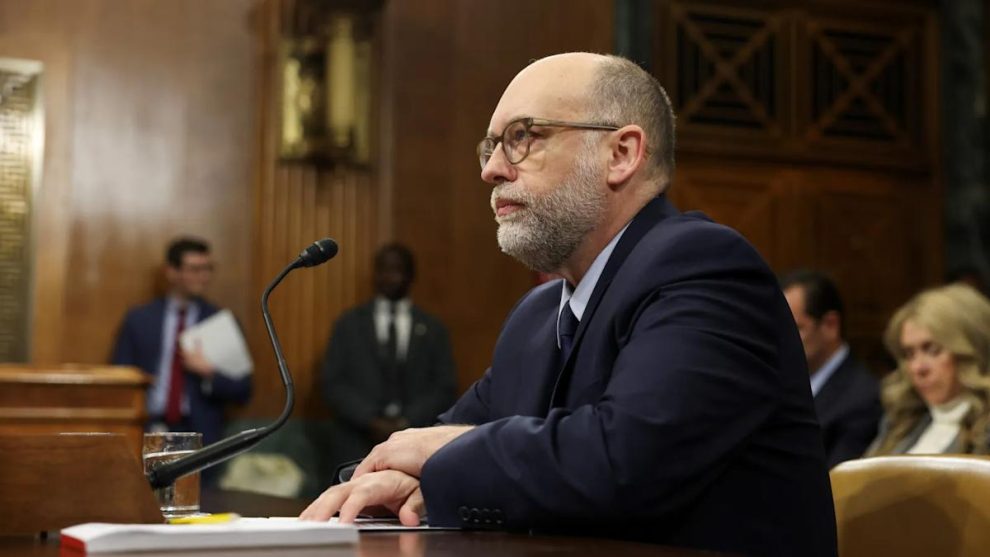This story was originally published on Banking Dive. To receive daily news and insights, subscribe to our free daily Banking Dive newsletter.
The Consumer Financial Protection Bureau will not enforce its small-business data collection rule, the agency said Wednesday in a press release.
“The Bureau will instead keep its enforcement and supervision resources focused on pressing threats to consumers, particularly servicemen and veterans,” the CFPB wrote.
The move eases the compliance burden for lenders originating 2,500 or more small-business loans per year – roughly 2½ months before they would have had to begin collecting race, gender, LGBTQ status and demographic data from borrowers.
They still can collect the data, of course – and likely risk penalties from future iterations of the CFPB if they don’t, unless the current CFPB issues a rule that supersedes the one finalized in March 2023.
That measure touched off a flurry of litigation nearly from the moment it was issued. A Texas bank and the state’s banking trade group sued the CFPB to block the rule less than a month after it was issued.
Some lawmakers groused, too. Sen. John Kennedy, R-LA, argued the rule “perverts our intention of Section 1071 of the Dodd-Frank Act” – adding that it violates entrepreneurs’ privacy and would create a paperwork nightmare for lenders.
“[The CFPB] took our 13 pieces of information that we asked for, and they have expanded it to 81,” Kennedy said of the data to be collected. “All of a sudden, they want a book.”
He introduced a resolution in June 2023 to repeal the rule via the Congressional Review Act. The Senate and House each voted to do so. But then-President Joe Biden vetoed the matter.
Meanwhile, Chief Judge Randy Crane of the U.S. District Court for the Southern District of Texas exempted members of the suing bank, trade group and American Bankers Association from having to implement the rule — then extended that exemption to lenders nationwide — on the thought that if the Supreme Court were to declare the CFPB’s funding structure unconstitutional, a subsequent judicial action could void the rule entirely.
The Supreme Court ultimately upheld the CFPB’s funding structure in May 2024.
Crane then rejected the Texas and ABA claims that the CFPB is overstepping its authority with the data-collection rule.
“It may well be that the final rule proves ill-advised as a policy matter, but that possibility does not itself make the final rule unlawful,” Crane wrote last August.
The CFPB last month, though, noted that two other courts have stayed compliance dates for lenders challenging the rule – and the bureau added in a court filing that it was “assessing” the 2023 rule with an eye toward retooling it.
Wednesday’s move is unusual for the bureau.
“The CFPB can’t simply gut rules by press releases on its whim,” National Community Reinvestment Coalition CEO Jesse Van Tol told American Banker. “No court has ever said any part of the law is a problem.”
The CFPB, especially under Acting Director Russ Vought, has been loath to issue press releases at all – let alone those with regulatory implications. The bureau published no press releases between Feb. 4 and March 25 and has issued only five since.
In Wednesday’s release, the CFPB said it “will not prioritize enforcement or supervision actions with regard to entities that are currently outside the stay imposed under Texas Bankers Association v. CFPB.”
The bureau then appeared to justify its decision by citing lack of resources.
“Even absent resource constraints, the Bureau would deprioritize enforcement of this rule because of the unfairness of enforcing it against entities not protected by the court’s stay but similarly situated to parties that are protected by the stay,” the CFPB wrote.
One might argue the resource constraints are self-inflicted. A federal judge has halted Vought twice from implementing plans to lay off up to 90% of the bureau’s workforce. On his first day as the CFPB’s acting director, he notified the Federal Reserve that the bureau would not use any unappropriated funding.
The fairness argument also received pushback from consumer advocates.
“The CFPB is subverting the rule of law by telling the largest banks, credit unions and fintech companies they can ignore the small business lending rule,” Van Tol said in a statement Thursday. “While they disingenuously frame their total disrespect for the law as a matter of fairness, failing to enforce Section 1071 rules will in fact prevent transparency for the public, shield financial institutions from unfair practices coming to light, and delay prosperity for small businesses.”
Amid a court-ordered stay last year, the CFPB delayed the compliance time frame for the rule by 290 days. That pushed to July 2025 the deadline for lenders originating 2,500 or more small-business loans per year to begin collecting data. Under the revised time frame, lenders originating at least 500 per year must collect data by Jan. 16, 2026. Lenders that originate at least 100 each year must comply by Oct. 18, 2026.
“The Bureau looks forward to resolving the status of this regulation and ensuring fair, consistent treatment for all entities impacted by the regulation,” the CFPB wrote Wednesday.











Add Comment